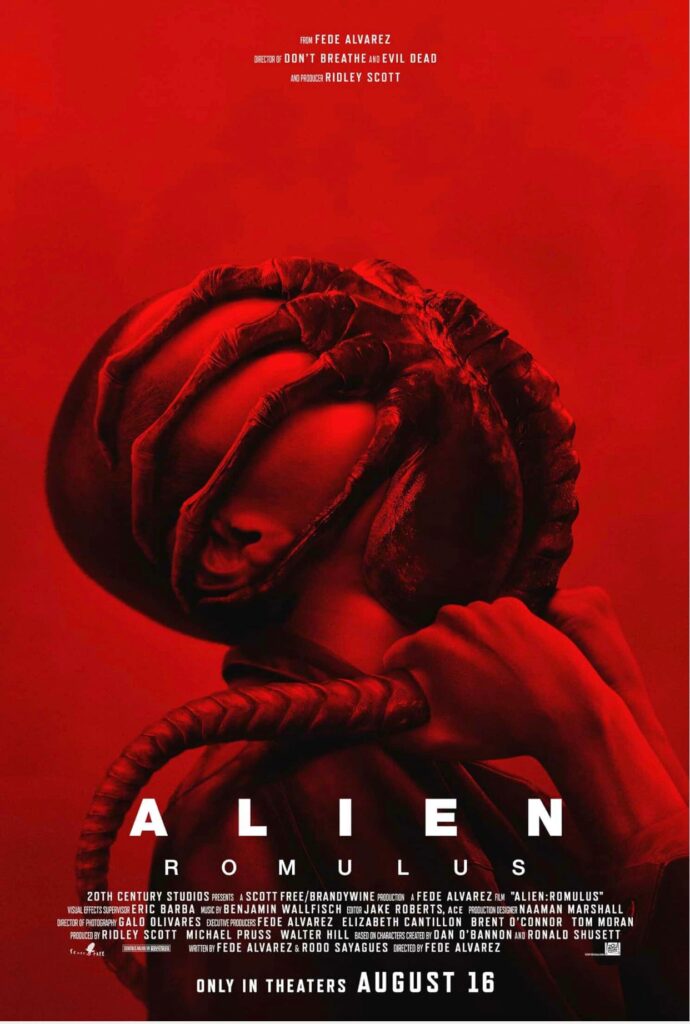
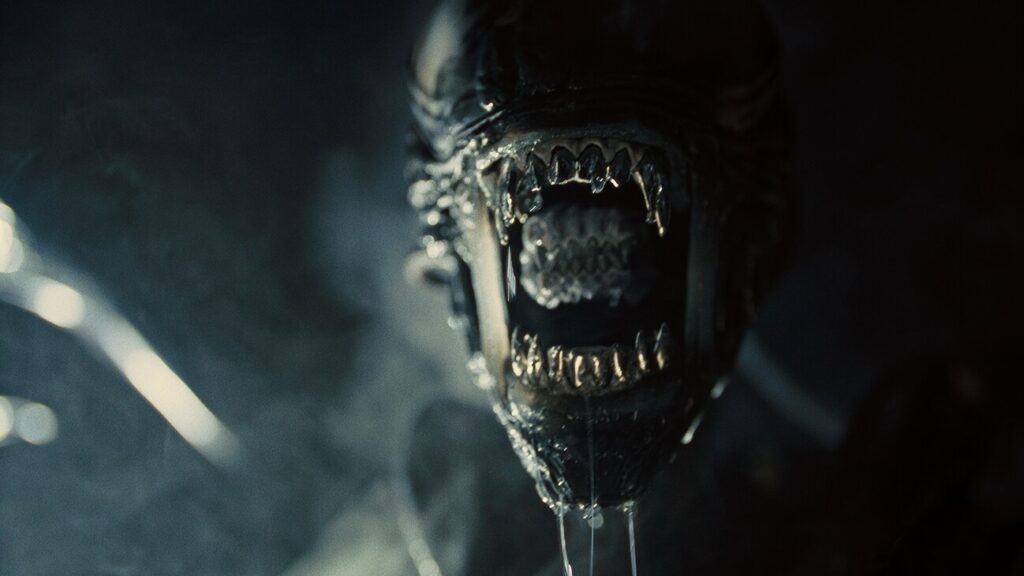
Alien: Romulus thrusts the franchise back into the cold, claustrophobic reaches of space, navigating both its past and present. Fede Álvarez, known for injecting a raw, visceral energy into his films, steps into the director’s chair for this ninth installment, deftly balancing homage to Ridley Scott’s original while trying carving out his own niche within the saga.
The Alien franchise has always been more than just a series of horror films; it’s a philosophical exploration of the human condition. From corporate greed to the nature of motherhood, each installment has peeled back layers of modern anxieties, exposing the raw nerves underneath. Yet, at its core, Alien has always interrogated the eerie boundary between the “real” and the “artificial,” a theme that Álvarez leans into.
Spoilers for Alien: Romulus
The film centers on Rain, played with steely resolve by Cailee Spaeny, an indentured mine worker yearning for a better life. Her only companion is Andy, a malfunctioning android portrayed by David Jonsson, whose performance brings a touching, almost heartbreaking depth to the character. Together with the rest of their crew who are all looking for an escape, they attempt to find cryo-sleep chambers in a derelict space station. Isabela Merced’s Kay is a standout among the group with her killer performance, really bringing that fear and the soul into something that needs a knockout performance like that. While the rest of the crew either doesn’t have any real development or simply dies too early.
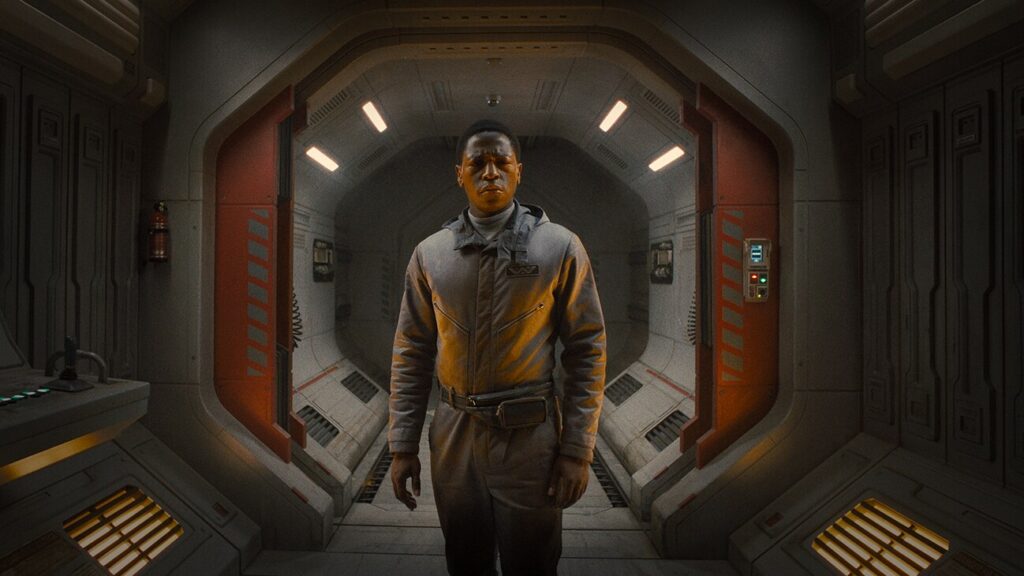
Álvarez’s Romulus is both a standalone entry and a greatest hits compilation, nodding to the franchise’s most iconic moments. There’s a sense of déjà vu that permeates the film, not unlike the experience of watching some of the more recent longstanding entries of old franchises. The director’s background in horror is evident, especially in the way he ratchets up tension, weaving in elements of body horror that feel like a natural evolution of the franchise’s DNA.
In Alien: Romulus, the theme of immigration is poignantly explored through the character of Rain, who yearns for a new home and attempts to achieve this dream through the “legal” channels within the rigid and unforgiving system. However, the very structure meant to facilitate safe passage becomes a mechanism of oppression, designed to keep her trapped in a cycle of despair. The bureaucracy she faces mirrors the real-world struggles of immigrants who seek a better life, only to find themselves ensnared in red tape, unable to escape the systemic forces that work against them. Rain’s journey, and the journey of her shipmates, underscores the harsh realities of those who follow the rules, yet remain marginalized and exploited by the very system they hoped would offer them sanctuary. The film continues the metaphor even with the ship. The ship in Alien: Romulus becomes symbolic of these fragile vessels, representing both a lifeline and a death trap just like people trying to get into different countries while floating on literal rafts. The alien creature they encounter embodies the monstrous obstacles that immigrants face, from the physical dangers of their journey to the dehumanizing conditions they endure. The terror and unpredictability of the alien reflect the relentless challenges these individuals must overcome, illustrating the immense courage required to seek out a new home in a world that often seems determined to deny them one.
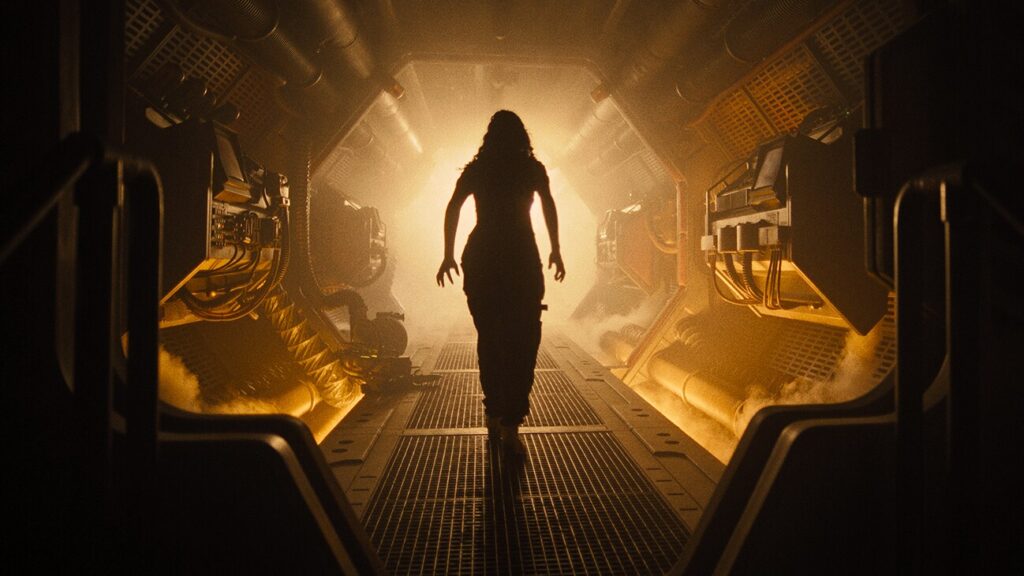
Visually, the film is a feast. Galo Olivares, the cinematographer, crafts a breathtaking spectacle with sequences that range from the stark beauty of outer space to the dark, haunted interiors of the Romulus station. The use of lighting and color feels like a loving tribute to Derek Vanlint’s work on the original Alien, yet with a modern twist that enhances the film’s atmosphere of dread.
Yet, for all its visual splendor and moments of genuine tension, Romulus occasionally stumbles under the weight of its own ambitions. The film’s narrative, while engaging, like it’s not enough. I love the idea of using the structure of putting all of the Alien films in a blender to tell a personal story about these kids, but it feels like it doesn’t add enough to the lore to stand completely on its own. I would gladly give up some of the puzzle pieces of the other Alien films for more about the metaphor of immigration.
One of the most jarring aspects of Alien: Romulus is the digital resurrection of Sir Ian Holm to reprise his role as the android Ash. The decision to bring back Holm, who passed away in 2020, using CGI is nothing short of digital necromancy, and the results are painfully obvious. The uncanny valley effect is in full force, with the artificial recreation failing to capture the nuance and subtlety of Holm’s original performance. Instead of enhancing the film, this CGI character ends up being a major distraction, with audiences at my screening erupting in laughter during scenes meant to be tense or dramatic. The overuse of this poorly rendered character not only undermines the emotional weight of the film but also pulls viewers out of the experience.
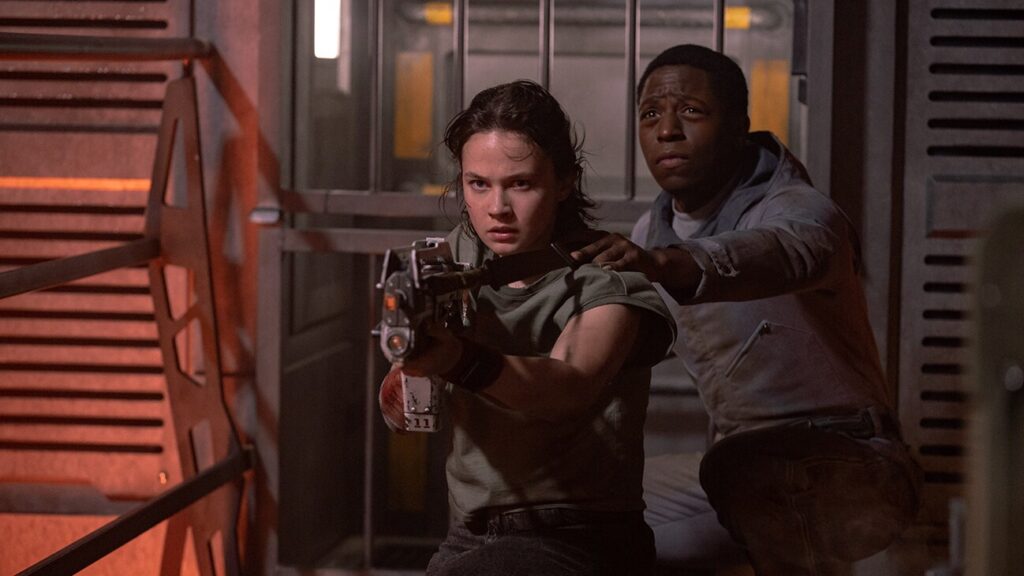
With those two people the things that absolutely did not resonate, I think it is time to talk about something that did- the relationship between the main character, Rain and Andy, the android/surrogate brother. Their bond is the emotional core of the film, providing a rare glimpse of warmth and humanity amid the relentless horror. Andy’s innocence and resourcefulness contrast with Rain’s hardened resolve, creating a dynamic that feels authentic and earned. Their growing friendship, marked by moments of vulnerability and mutual support, gives the audience something to root for in a film otherwise dominated by chaos and despair. This connection not only adds depth to Rain’s character but also highlights the film’s other underlying theme of seeking connection and hope in a world that seems determined to crush them both. Their friendship is also put to the test by the embodiment of capitalism in the series that basically takes over Andy’s body. What a metaphor! Bravo!
Romulus is a worthy addition to the franchise, offering both longtime fans and newcomers something to sink their teeth into. Álvarez’s direction, combined with strong performances—particularly from Jonsson, elevates Romulus beyond mere spectacle. It’s a film that, like its predecessors, asks big questions about what it means to be human in an increasingly inhuman universe and reminds us how inhuman CGI necromancy can be.
In the end, Alien: Romulus is a testament to the franchise’s enduring power. It might not have all the answers, but it’s unafraid to ask the questions, delivering a blend of horror, action, and philosophical inquiry that leaves you both satisfied and hungry for more.
Stars: 3.5/5

